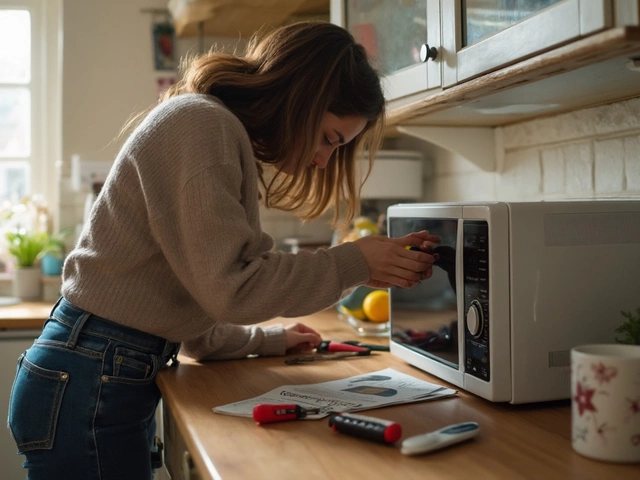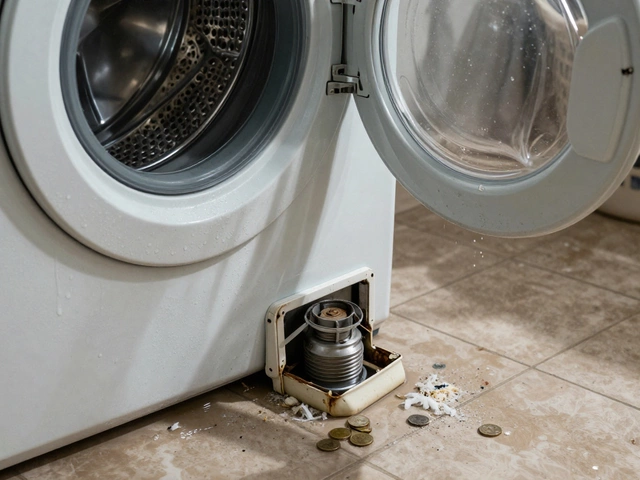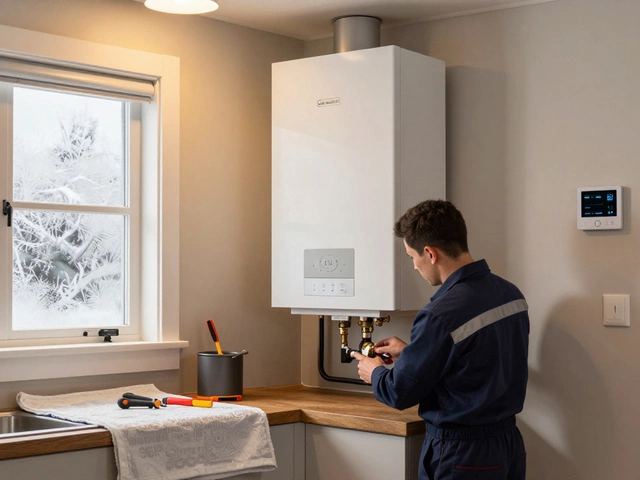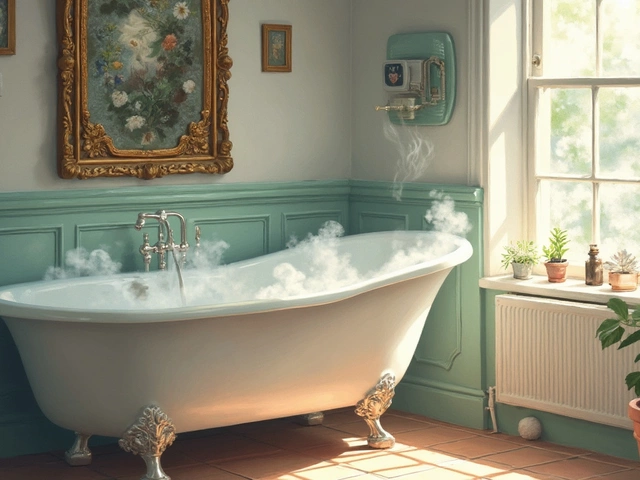Microwave Oven Repair: How Easy Is It, Really?
May 2 2025Hot Water Help: Repair, Maintenance & When to Call a Pro
Nothing ruins a morning like a cold shower. If your taps are lukewarm or not heating at all, the problem is probably with your water heater, boiler, or the plumbing that feeds it. The good news? Most issues have a simple fix, and you don’t always need to wait for a technician.
First, listen for any odd sounds. A rumbling or knocking noise usually means sediment has built up inside a tank‑style heater. That sediment traps heat, making the unit work harder and eventually lowering the temperature of the water you get. If you hear a hissing sound, you might have a leak or a pressure‑relief valve that’s opening early.
Another common sign is a sudden drop in hot‑water pressure. This can be caused by a blocked aerator on the faucet, a stuck valve, or a failing pump in a combi‑boiler system. Finally, check the thermostat. Many people forget to adjust it after a seasonal change, leaving the temperature set too low.
DIY Checks Before You Call
Before you pick up the phone, try these quick steps. Turn off the power or gas supply to the heater for safety, then locate the reset button (usually a red button on electric heaters). Press it and see if hot water returns. If you have a tank heater, drain a few gallons into a bucket using the drain valve – this flushes out the sludge that causes those rumbling noises. Re‑fill the tank, turn the power back on, and give it a few minutes to heat.
For a combi‑boiler, bleed the radiators. A trapped air pocket can reduce flow, making it seem like the hot water is weak. Use a radiator key to open the bleed valve slightly; you’ll hear a hiss as the air escapes, then water will flow steadily. Close the valve once water runs out.
If the heater is leaking, locate the source. A small drip around the pressure‑relief valve often means the valve is working correctly – it releases excess pressure. But a drip at the tank’s bottom usually signals a corroded tank that needs replacement.
Why a Certified Gas Engineer Matters
Even if you manage a few fixes yourself, certain jobs should always be left to a certified gas engineer. Working with gas lines or internal boiler components carries a risk of carbon monoxide leaks, explosions, or voiding warranties. A registered professional can safely test for leaks, service the heat exchanger, and ensure the unit complies with local regulations.
In Bedford, our engineers are Gas Safe registered, meaning they’ve completed the required training and can legally work on gas appliances. They’ll also perform a full safety check, inspect the flue, and make sure the combustion is clean – all steps that keep your home safe and your bills low.
When you book a service, ask for a written report. It should list any parts replaced, the condition of the pressure valve, and recommendations for future maintenance. Regular annual servicing can add years to the life of your boiler and prevent costly breakdowns during the cold months.
Bottom line: start with the easy checks, keep an eye on noises, pressure, and temperature, and call a qualified Bedford gas engineer when you’re unsure or the problem involves gas. Warm, reliable hot water is just a few simple steps away.
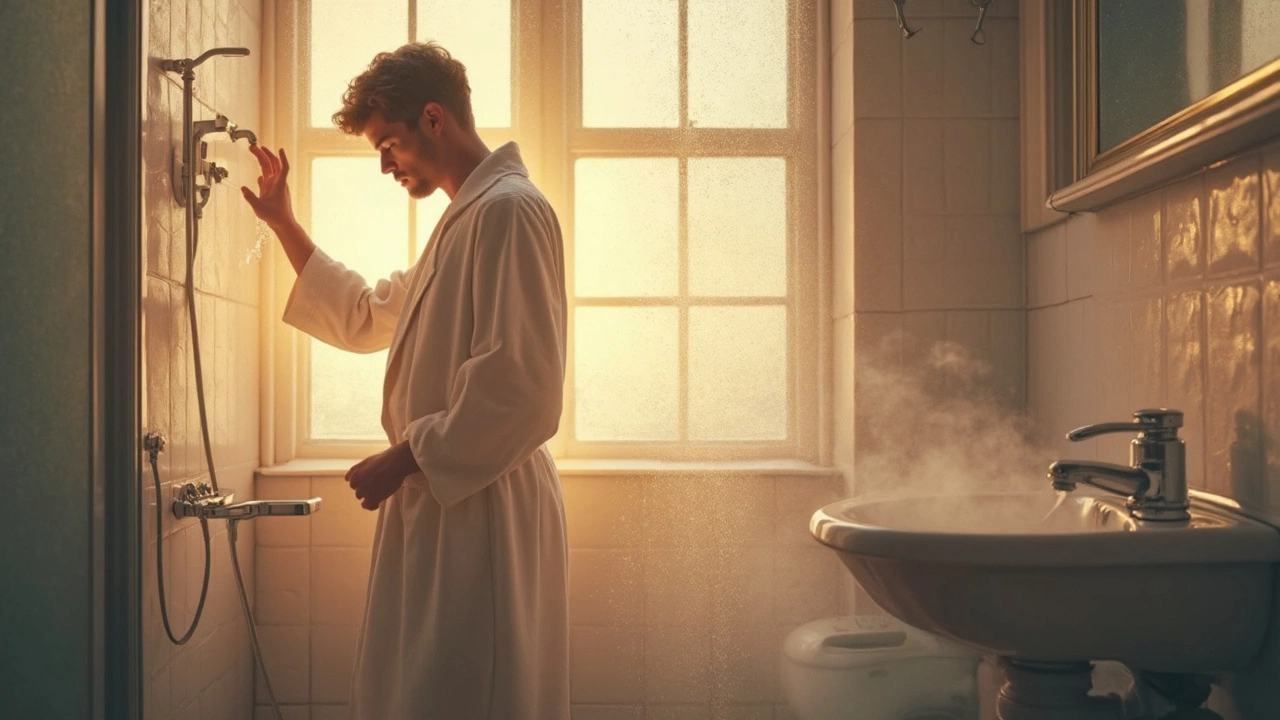 13 Jun
13 Jun
Hot Water Only at the Sink? What Your Shower Is Really Telling You
If you’re getting hot water from your sink but only cold in the shower, something’s off—and it’s not always your water heater’s fault. This article breaks down the problem step by step so you can figure out exactly what’s going wrong. Learn common culprits and smart fixes you can try on your own before calling a plumber. From shower valves to hidden clogs, get the answers you need to get your mornings back on track. Simple troubleshooting makes all the difference—and it’s probably not as complicated as you think.
Read More...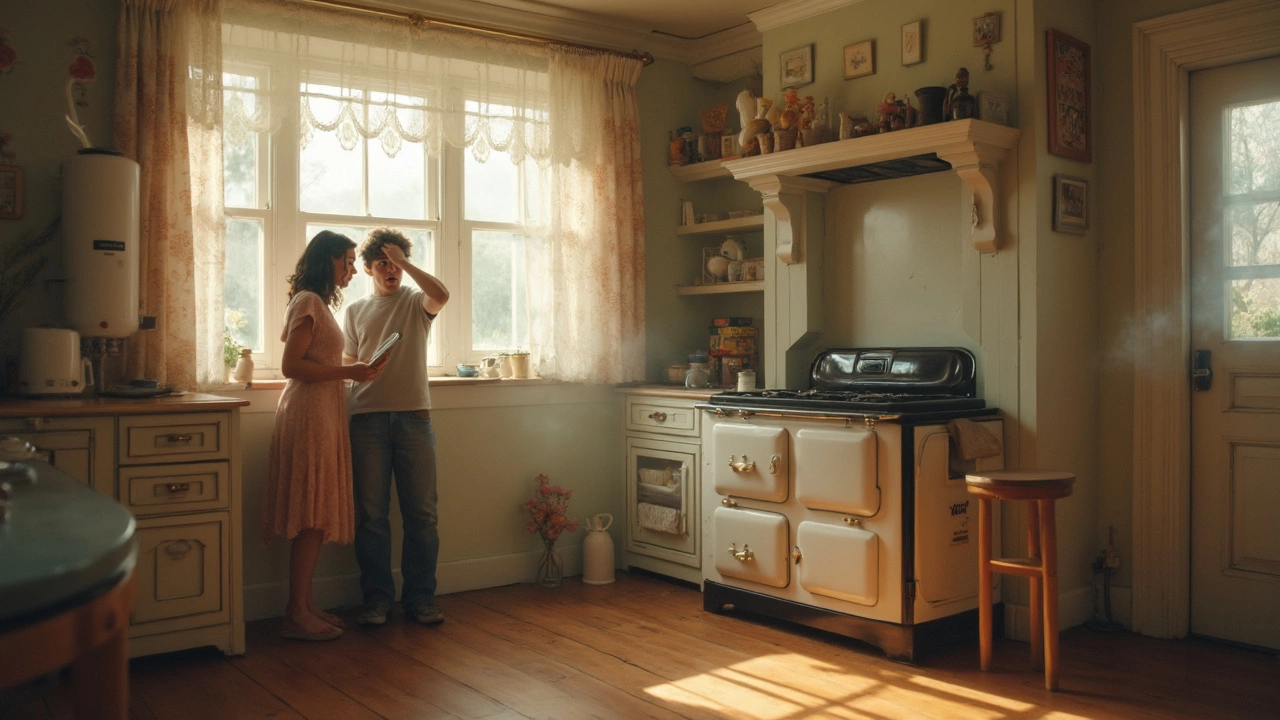 14 Feb
14 Feb
Why Your Hot Water Might Be Taking a Break
Having trouble with your hot water? There could be several reasons behind the problem, ranging from a simple pilot light issue to a more complex thermostat malfunction. This article digs into the common culprits and offers practical tips to troubleshoot and get your water heater back up and running. Following some straightforward steps can save you time and possibly money. No more cold showers; let's tackle this hot water hiccup together.
Read More...